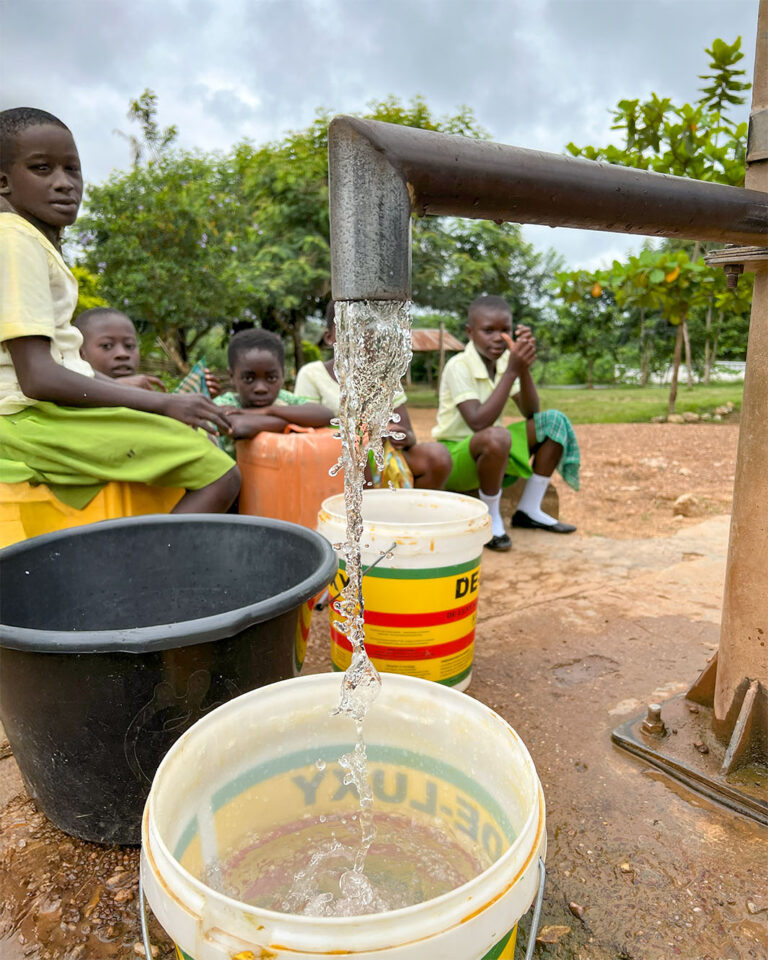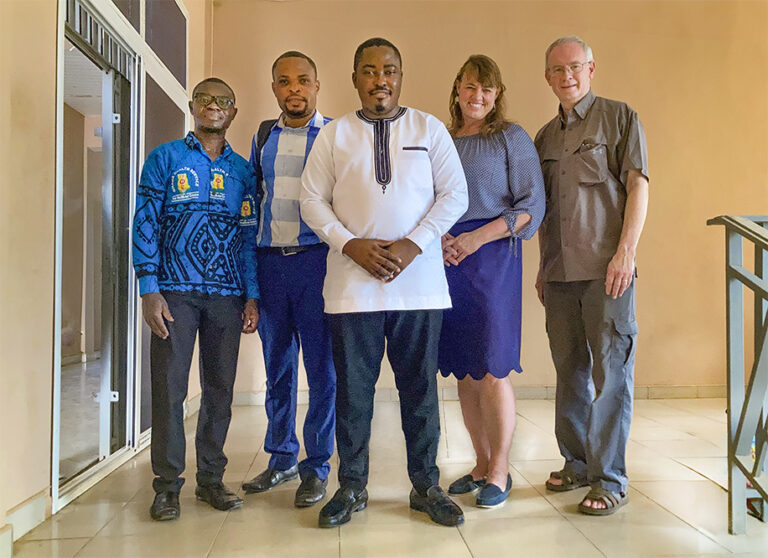Across the globe, millions of people have access to water—but that doesn’t always mean the water is safe to drink. In rural Ghana, even clean water from deep boreholes can become contaminated by the time it reaches a family’s home. That’s where the Bright Water Foundation’s Safe Water Education Initiative comes in.
A general overview of BWF’s Safe Water Program.

In rural Ghana, Bright Water Foundation’s current focus, most families get household water from community boreholes—deep, narrow wells with a pump to draw clean water, safe for drinking.
Yet, why is waterborne disease still so prevalent?
We have that answer. And we’re doing something about it!

At Bright Water Foundation (BWF), we believe that access to safe water is not only a basic human right, but a shared community responsibility. Our Safe Water Initiative in rural Ghana is delivered through field projects that place families—the most affected by unsafe water—at the heart of our work.
Yet creating lasting change requires more than household outreach. It calls for the active involvement of trusted local leaders and institutions who shape life in these rural communities.
In developed countries, because of municipal water treatment, families can turn on the tap and fill a glass with clean, safe drinking water.
In the developing world, there are no water treatment facilities. A glass of water can carry parasites, bacteria, and viruses that lead to sickness, lost income, missed school, and, in the worst cases, death.
Families need a way to treat their own water at home. Bright Water has a simple method for doing just that.
Through BWF’s active School Health Clubs, students are learning how to protect themselves and their families from unsafe water and, at the same time, how to build happier healthier lives.
Through BWF’s active School Health Clubs, students are learning how to protect themselves and their families from unsafe water and, at the same time, how to build happier healthier lives.